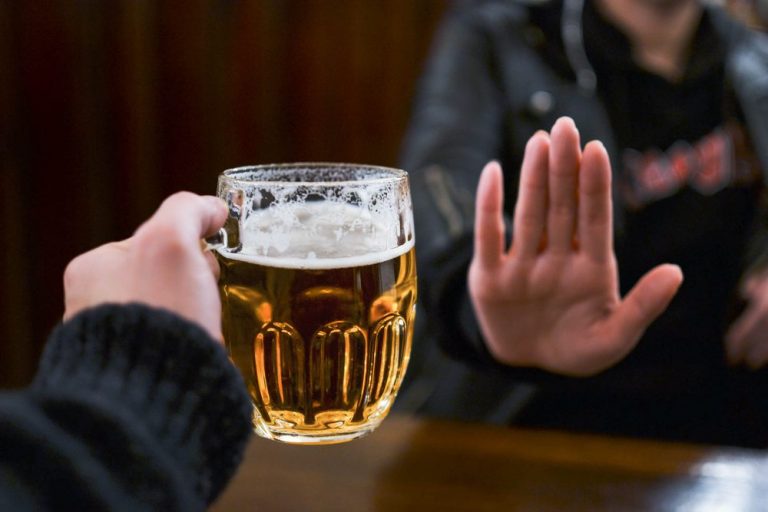Less than 20 percent of individuals who receive treatment for alcohol use disorder (AUD) will remain alcohol-free for an entire year. The first years are always the hardest, and the relapse rate begins to decrease over time. Of those who are sober, 60 percent will remain alcohol-free, and those who are sober for five years are likely to stay sober. Unfortunately, the threat of relapse remains.
While many seek new outlets to resume their daily lives, many have been straying toward a new trend—mocktails, sober bars, and non-alcoholic beverages. The latest fad, known as sober curious, has been dominating headlines as an alternative to hangovers, which promote a healthier lifestyle. There is also mounting evidence that even those who are not in recovery seek out this type of environment as millennials become more health-conscious.
While the trend continues to gain steam, advocates of Alcoholics Anonymous (AA) and other individuals in recovery have started to voice their concerns. Is the mocktail, “near beer,” and alternative party atmosphere dangerous for people in recovery?
A new study seems to support the theory that it can push those in recovery to the brink of relapse.
Beer Odor Can Be A Trigger
We are reminded every day about the power of smell. Taking in the fragrance of something we have not smelled in some time can transport us to a specific moment in time. In that same breath, the odor of beer can be enough to trigger cravings and put the early stages of relapse into motion.
Both alcohol and the anticipation of alcohol can raise levels of dopamine, which is a chemical in our brain responsible for feelings of pleasure and elation.
While it may feel good to relive old memories and feel like you are taking part in past activities, something as small as a fake beer may not be so small in the end. Drinking one can rob someone of the months or years of progress made in recovery.
Same Behaviors Will Lead To Same Outcomes
It’s a slippery slope to participate in sober activities similar to your party days. It may feel different this time because you have gone through intensive therapy to overcome the issues that pushed you to drink.
Unfortunately, it may not always be enough when you place yourself in precarious situations. One danger of participating in these behaviors is to develop the same attitude while drinking nonalcoholic beer as you used to have when drinking.
It can take one slip up to throw away years of progress. While a lapse can easily be overcome, it’s those who can’t get past the little slip-up to continue moving forward. Placing yourself in these types of situations is not conducive to sobriety. Motive plays the most prominent role, and someone who wants to participate, even with nonalcoholic beer, has already slipped into the first stage of relapse.
Stay Sober By Staying Away
For those who are not struggling with the demons of addiction, we strongly encourage the sober curious movement. The latest reports indicate a substantial rise in alcohol use worldwide, and that nearly half of the world’s population will be drinking in the next 30 years. If there is an outlet promoting a healthier lifestyle, every doctor, addiction specialist, and advocate of sobriety is going to recommend this lifestyle. Unfortunately, not everyone has that same luxury, and those in recovery must take a more cautious approach.
Develop Healthy Habits
Recovery experts recommend that individuals in recovery develop a drug-free lifestyle to help avoid relapse and maintain their sobriety. To be clear, a relapse is not a situation where someone slips up and has a drink. Instead, it is a process in which someone eventually continues their drinking habits as they did before recovery. In some cases, it can be worse than before due to guilt or shame.
The experts suggest replacing behaviors with the past with healthy activities. Many in recovery find that they must replace old friends with nondrinking companions to stay sober.
If you are sitting around drinking near beer with the same people in the same places you once drank, you are maintaining your old lifestyle and not developing a new one. You are playing with fire by living this life, and eventually, you will get burned.
It is important to remember that AUD is a chronic disease. It is similar to diseases, such as diabetes, in that it will never be cured. Treating disorders like alcoholism requires a lifetime of management, and as someone who is sober, you are in recovery.
Professional treatment is necessary for individuals to overcome their alcohol addiction, and they must maintain their sobriety over the years by remaining active in after and supportive programs, such as 12-step groups. If you are in recovery and feel pressured to return to alcohol or drug use for whatever reason, consider enrolling in an outpatient treatment program or joining a support group to help keep you on the right track.
Addiction is a dominant disease, and alcoholism is no exception to that rule. Anyone who struggles with this knows it is a daily battle, and there is potential to relapse even after years of prolonged sobriety. The demons will always persist, and that’s why managing the disease is the best option to maintain sobriety.

